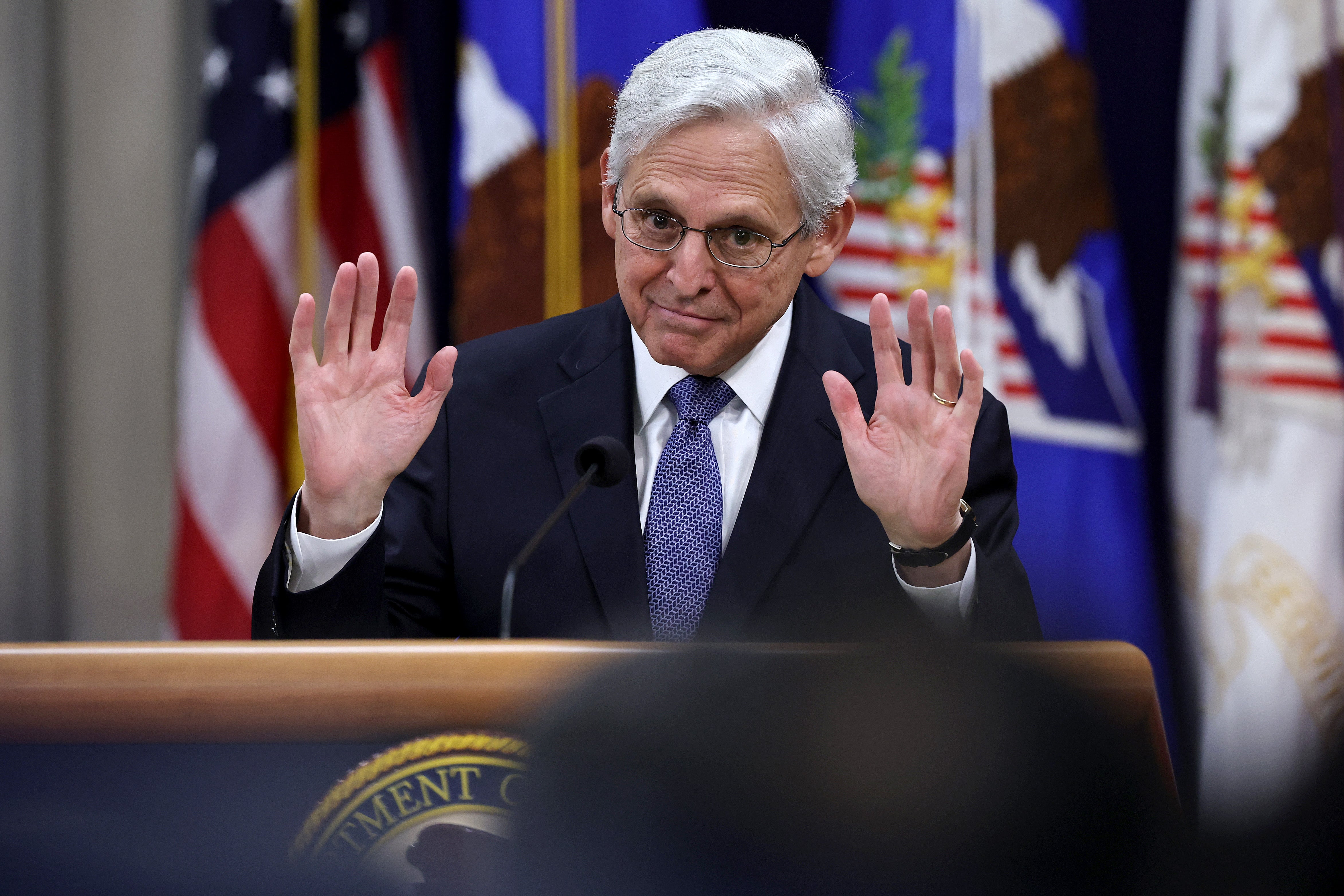Fani Willis’ effort to prosecute then-former President Donald Trump, alleging a coordinated effort to change the results of the 2020 election and keep himself in power, ended on Wednesday, the day before his first of four Thanksgivings he’ll celebrate as commander-in-chief once again.
The case against Trump and 14 other co-defendants collapsed in a heap after a prosecutor assigned to take over the case from Fulton County District Attorney Fani Willis asked a judge to dismiss the charges, citing the unfeasible prospect of compelling a sitting president to appear in court and the small likelihood that the trial could still be mounted after he left office.
It marked the end of the last effort to hold Trump accountable, at least criminally, for the lawbreaking and corruption his enemies have long argued was a defining characteristic of the MAGA Republican president before his rise to power — and resulting from his efforts to cling to it after voters decided otherwise.
The book is now closed on any prosecution of Trump or any of his allies and supporters for the violent riot at the U.S. Capitol on Jan. 6, 2021, when a mob stormed the halls of Congress to seeking to halt the certification of the election. The statute of limitations will expire next year for any federal charges related to the violent attack.
In the end, it came down to timing — and an incredibly glaring error of personal and professional judgment by Willis.
The Georgia case, like the federal effort headed up by Jack Smith at the Department of Justice, was stymied by Trump’s return to the presidency in 2025. But Smith’s seemed predestined to fail as Merrick Garland, Joe Biden’s attorney general, did not begin the investigation against Trump in earnest until March of 2022, only a few months before it was clear that Trump would run again.
The Justice Department instead consumed an incredible amount of resources identifying and chasing down individual participants in the Jan. 6 attempted insurrection, a well-intentioned strategical error that was ultimately rendered a meaningless crusade given Trump’s decision to pardon each and every one of them upon returning to the White House.
Trump has maintained his innocence all along but alos to this day speaks of the 2020 election as “rigged” and a “fraud.”
Willis’ prosecution appeared serious from the onset, however, and scored early victories. Four of Trump’s 18 original co-defendants including Sidney Powell, a top member of his legal team, took plea deals and were convicted in 2023, agreeing to testify against their allies.
In February 2024, a Supreme Court ruling made clear that Smith’s case would almost certainly be delayed through the 2024 election, jeopardizing its future and tying its fate to the results of the matchup between Trump and Kamala Harris. But in January, a development in Willis’ case had already dealt a mortal wound to the prosecution of Trump and his remaining co-defendants.
A motion made by one of those co-defendants revealed a shocking twist. Willis and a special prosecutor she’d hired to assist with the case, Nathan Wade, were in a romantic relationship. The defense attorneys argued that Willis, by allowing Wade to pay for a Royal Caribbean cruise vacation for the pair in 2022 and two other trips in 2023, had financially benefitted from her appointment of Wade to possibly the most important and heavily scrutinized case being undertaken by a district attorney in a decade. The revelation was first uncovered via Wade’s divorce proceedings.
By appointing Wade to the case, Willis doomed it. One Georgia-based legal expert told the New York Times that Willis had “stabbed the case right in the heart.”

"The history books will look back on what the country lost by not having a televised trial before November 2024 and historians will wonder what Fani Willis was thinking. And they'll just scratch their heads," Anthony Michael Kreis, a law professor at Georgia State, told The Guardian after the case was “indefinitely” delayed that following summer.
Willis herself was formally removed from the case one month after the 2024 election.
Democrats had limited opportunities and avenues to seek prosecution of what they and many legal experts viewed as widespread criminal behavior by the Trump campaign in the wake of the 2020 election. Even in Georgia, the prosecutor who took the case over from Willis argued that the charges should have been pursued at the federal level, despite the guilty pleas of some co-defendants.
"The criminal conduct alleged in the Atlanta Judicial Circuit's prosecution was conceived in Washington, D.C., not the State of Georgia. The federal government is the appropriate venue for this prosecution, not the State of Georgia," wrote Pete Skandalakis in a court filing. He also cast doubt on the strength of the racketeering charge against Trump and others.
But Willis’ investigation of the president still stands out for one reason: Her office identified Trump as a target early on, and despite having significantly fewer resources than the federal DOJ, was able to return a grand jury indictment of the president and a host of others just two weeks after the Justice Department did. While by all accounts Willis’ team was on the ball early, a host of reporting supports the conclusion that Garland was largely pressured into bringing a delayed case against Trump at the federal level by the revelations of the House January 6 committee, which investigated both the attack itself and the broader “fake electors” efforts in Georgia, Arizona and other states.

Reporting from The New York Times in particular indicated that Garland focused on a bottom-up strategy, with little sense of urgency. His efforts to keep the Justice Department out of politics failed, with the case coming too late.
The reward: A Trumpified DOJ is now being singled out for its campaign against Donald Trump’s enemies that increasingly looks to be mired in failure with the dismissal of charges against James Comey and Letitia James, brought by a Trump loyalist whose appointment as prosecutor was ruled to be illegal.
Willis, however, retains the singular glory of having blasted a hole in her own case through sheer bad judgement.
Her relationship with Wade seems to have ended already: He testified in 2024 that their relationship ended and they were now just “good friends,” though an appearance together at an airport in early 2025 suggests the two remain very close to this day.
The convictions of Sidney Powell, Kenneth Chesebro and Jenna Ellis as part of plea deals secured by Willis’ office remain the only ones secured by any prosecutor, anywhere, still in effect stemming from the election subversion effort and the violent attack on the Capitol.
That’s merely a consolation prize, however, as Willis and others confront the reality that Trump, in their view, got away with it.







